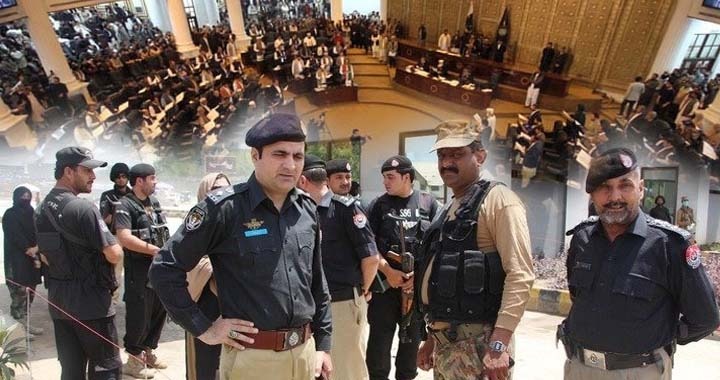The Khyber Pakhtunkhwa Assembly’s Security Committee was briefed on the province’s limited counter terrorism capacity, as police officials admitted that existing resources are insufficient to combat terrorism without the continued assistance of the Pakistan Army.
According to official sources, Inspector General of Police (IGP) briefed the committee that the total police strength in the province stands at approximately 130,000 personnel. Of these, 20 to 30 percent are assigned to the security of VIPs and other high-profile individuals, leaving around 80,000 officers available for active field duty against terrorism, a number considered inadequate given the scale of the threat.
The IGP further informed the committee that the police face severe shortages of vehicles, operational offices, and police stations, while the Counter Terrorism Department (CTD) suffers from low manpower and limited technical capacity. The provincial police chief complained that the department’s annual budget is “less than what is spent on a single ring road,” making it impossible to modernise or equip the force with the technology required for anti-terror operations.
Midway subheading — Security gaps and legal concerns discussed in detail
During the meeting, the IGP said that while the police remain committed to taking the lead in internal security, they would require both time and resources to handle terrorism independently. He stressed that, for now, military support remains essential for sustaining security in high-risk areas.
The committee also discussed the possible repeal of the Action in Aid of Civil Power Ordinance, which currently provides a legal framework for the detention of high-profile terrorists. Police officials warned that several dangerous militants are still in custody and that a proper mechanism must be in place to ensure their continued detention and protection before any legal changes are made.
Committee members shared their own experiences and concerns, particularly over the Bajaur operation and the lack of facilities provided to affected civilians. They also recommended forming joint committees comprising all stakeholders prior to any future targeted operations, in order to coordinate actions and minimise civilian losses.
The session concluded with a renewed call for strengthening police capacity, improving inter-agency coordination, and ensuring sustainable security measures to curb terrorism across Khyber Pakhtunkhwa.





